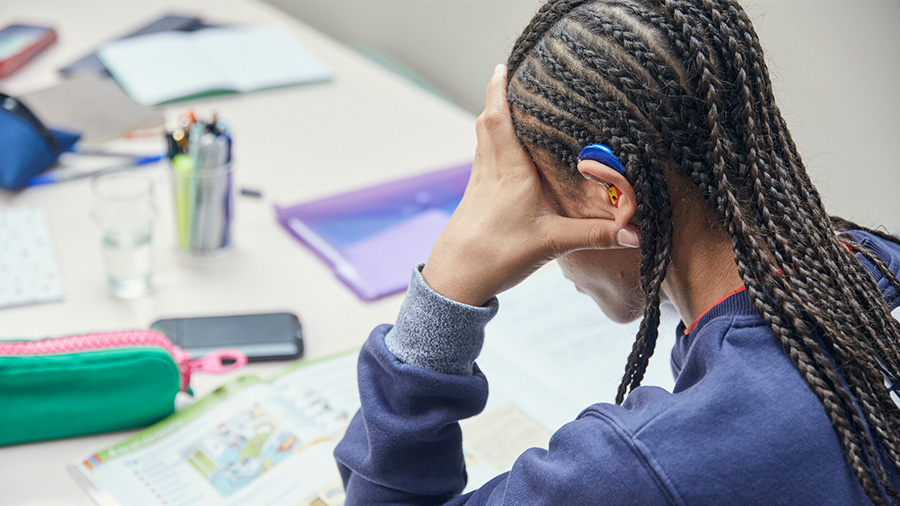In today’s competitive academic environment, many students find themselves struggling to keep pace with classroom learning. Subjects like mathematics and science, in particular, often demand extra practice and personalized attention to fully grasp complex concepts. This is where the guidance of a Math and Science Tutor can make a significant difference. Whether a student is falling behind, losing confidence, or simply aiming to achieve higher grades, identifying the signs that they may need a private tutor is the first step toward improved academic success.
Struggling to Keep Up in Class

Many students experience moments when the pace of classroom learning feels overwhelming. However, consistent difficulty in keeping up is often a clear signal that additional academic support may be needed.
Signs of Difficulty Understanding Lessons
If a student frequently asks for repeated explanations or seems confused even after attending classes, it may indicate that they are not fully grasping the concepts being taught. In subjects like mathematics and science, where each topic builds on the previous one, missing a single concept can create a domino effect, making subsequent lessons even harder to follow. A Math and Science Tutor can provide targeted explanations and break down complex topics into simpler steps, ensuring a strong foundational understanding.
Falling Behind in Specific Subjects
Some students struggle only in particular subjects rather than across the board. For instance, a student may excel in languages but find algebra or chemistry particularly challenging. Falling behind in certain subjects can affect overall academic performance and create frustration. Personalized tutoring can identify weak points and provide focused exercises that allow students to catch up at their own pace.
Impact on Test Results and Assignments
When a student is consistently struggling in class, it often reflects in their homework, projects, and exam scores. Assignments may take longer to complete, and tests may reveal gaps in understanding. This cycle of difficulty can impact motivation and confidence. A private tutor not only helps students understand the material but also teaches effective study techniques, time management skills, and problem-solving strategies to improve both grades and confidence.
Additional Support Tips
- Encourage the student to ask questions in class and maintain a list of confusing topics.
- Set aside regular time for focused study sessions at home.
- Consider a professional tutor if struggles persist despite extra effort.
Drop in Academic Performance

A noticeable decline in academic performance is one of the most obvious signs that a student may need extra support. Even if they are putting in hours of study, struggling grades can indicate gaps in understanding or ineffective study methods.
Declining Grades Despite Studying
When a student studies regularly but continues to see low grades, it often suggests that the study methods being used aren’t effective for their learning style. This is common in subjects like mathematics and science, where foundational concepts must be fully understood before moving on. A Math and Science Tutor can provide personalized strategies to help the student learn more efficiently and retain knowledge better.
Struggles with Homework Consistency
Students who repeatedly struggle to complete homework on time may be facing comprehension challenges or a lack of structured study habits. A tutor can guide them through difficult assignments, explain concepts clearly, and establish consistent study routines that reduce homework-related stress.
Teachers Pointing Out Weak Areas
Feedback from teachers is invaluable. If a student receives consistent remarks about weak performance in specific topics, it is a signal that professional guidance may be necessary. Tutors help address these weak areas before they snowball into bigger academic challenges.
Lack of Confidence in Learning

Confidence plays a crucial role in a student’s ability to succeed academically. A lack of confidence can manifest in hesitation, fear of mistakes, or anxiety when engaging with new topics.
Student Feels Anxious When Asked Questions
Students who hesitate or panic when asked to explain answers in class may be struggling with self-doubt. Anxiety can prevent them from demonstrating their true understanding. A private tutor creates a safe, supportive environment for learning, allowing students to ask questions freely and build confidence gradually.
Hesitation in Participating in Class Discussions
Classroom participation often declines when students feel unsure of their knowledge. They may avoid answering questions or contributing ideas, which can further impact learning. Regular tutoring sessions can encourage active engagement and provide practice in articulating answers, boosting both confidence and performance.
Fear of Making Mistakes
Fear of failure can prevent students from attempting challenging problems, particularly in math and science. Tutors help students embrace mistakes as part of the learning process, teaching problem-solving skills and resilience.
Poor Time Management and Study Habits

Effective time management and consistent study habits are essential for academic success. Many students struggle to balance schoolwork with other activities, leading to stress and underperformance.
Procrastination with Homework
Delaying homework or studying until the last minute is a common sign of poor time management. A tutor can introduce structured study schedules and set achievable goals, ensuring that students complete tasks on time and reduce last-minute stress.
Difficulty Staying Organized
Disorganized notes, misplaced assignments, and scattered study materials can hinder learning. Tutors can teach organizational strategies such as planning systems, note-taking techniques, and prioritizing tasks, helping students stay on track.
Struggling to Balance Multiple Subjects
Juggling several subjects at once can overwhelm students, especially if they find certain subjects more challenging. Personalized tutoring helps students allocate appropriate time and effort to each subject while maintaining overall balance.
Increased Stress Before Exams

Exams can be a major source of stress for students, affecting both performance and overall well-being. Recognizing early signs of exam-related anxiety is crucial to prevent academic setbacks.
Test Anxiety and Panic
Some students experience nervousness, sweating, or panic before or during exams. This anxiety can make it difficult to focus or recall information, even if they have studied well. A Math and Science Tutor can help by simulating exam conditions, providing practice tests, and teaching coping strategies to reduce anxiety.
Forgetting Learned Material Under Pressure
Stress often causes students to blank on material they actually know. This can be discouraging and further lower confidence. Regular tutoring sessions reinforce key concepts and use repetition techniques to strengthen memory recall under pressure.
Need for Structured Revision Support
Many students attempt to revise on their own but lack a systematic approach. A private tutor creates a structured revision plan, breaking down content into manageable portions and ensuring students review effectively without last-minute cramming.
Parents Struggling to Help at Home

Even the most dedicated parents may find it difficult to assist with modern curricula, especially in challenging subjects like math and science.
Parents Unable to Keep Up with Advanced Curriculum
Curriculum changes and advanced topics can make it hard for parents to explain concepts effectively. A private tutor fills this gap, providing professional guidance and personalized attention tailored to the student’s needs.
Homework Turning into Daily Conflicts
Homework time can become stressful when parents struggle to help or when students resist support. This can lead to arguments, frustration, and reduced motivation. A tutor creates a neutral, supportive environment that encourages consistent learning without conflict.
Desire for Professional Academic Support
Parents often want their child to achieve academic success but may feel unequipped to provide all the necessary support. Hiring a tutor ensures that the student receives expert guidance, tailored study plans, and ongoing progress monitoring.
Desire to Excel Beyond the Classroom

Some students are not just struggling—they are eager to achieve more. Private tutoring is not only for remedial support; it also helps high-achieving students reach their full potential.
High-Achieving Students Needing an Academic Challenge
Students who grasp classroom material quickly may feel bored or unchallenged. A tutor can provide advanced problems, enrichment exercises, and individualized lessons to keep them engaged and motivated.
Preparing for Competitive Exams
Competitive exams require focused preparation, strategy, and practice beyond regular schoolwork. Tutors guide students through exam techniques, time management, and subject-specific strategies to maximize scores.
Seeking Advanced Subject Knowledge
For students passionate about a subject, tutoring offers the opportunity to explore topics in greater depth. Whether it’s complex math problems or advanced science experiments, a Math and Science Tutor can help satisfy curiosity while building expertise.
Conclusion
Recognizing the signs that a student may need a private tutor is the first step toward academic success. Whether it’s struggling to keep up in class, experiencing a drop in grades, lacking confidence, managing poor study habits, facing exam stress, or needing additional support at home, these indicators highlight the value of professional guidance.
FAQs
How do I know if my child needs a private tutor?
Signs such as declining grades, struggling to keep up in class, lack of confidence, and difficulty completing homework consistently indicate that a private tutor could provide valuable support.
Can tutoring really improve exam performance?
Yes. Private tutoring offers personalized attention, structured revision, and effective study techniques that help students understand concepts better and perform confidently in exams.
At what age should a student start tutoring?
Tutoring can benefit students of all ages. Early intervention, especially in foundational subjects like math and science, helps prevent learning gaps and builds confidence from a young age.
How often should tutoring sessions be held?
The frequency depends on the student’s needs. For struggling students, 1–2 sessions per week may suffice, while students preparing for competitive exams or seeking advanced knowledge might benefit from more frequent sessions.
Is private tutoring better than group tuition?
Private tutoring provides personalized attention, tailored lesson plans, and flexible pacing that group tuition often cannot match, making it ideal for addressing specific challenges and accelerating learning.